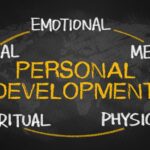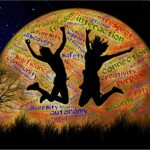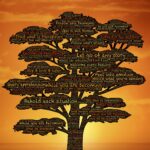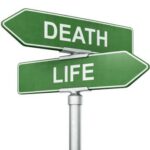In my first article in this two-part series on the forces that shape our lives, I explored the five forces (genes, upbringing, popular culture, technology, and unexpected events) that I believe are most impactful on who we become, the choices we make, and the direction our lives take. In this article, I will introduce what I believe is the final force on who we become which brings us full circle from my initial consideration of free will that I shared in Part I of this series.
Given my exploration of the five previous forces, there would seem to be considerable uncertainty about whether we actually make deliberate choices in our lives or rather just think, feel, and behave in ways driven by the first five forces. Here is an interesting way to think about it. How often do we think in ways that oppose the five forces, whether perceiving, understanding, interpreting, or evaluating a given person, situation, or experience? How regularly do we feel emotions that haven’t been instilled in us by the above five forces? How frequently do we behave in ways that go against the values, attitudes, beliefs, and habits that have been ingrained by the five other forces?
At first blush, I have to say that, as much as I would like to believe in free will and self-determination, it’s very difficult to come up with a situation in which the five forces didn’t lead me inexorably to a particular decision. Is free will then more an illusion that reality? We feel that we make decisions because we are choosing one option over other possibilities. But, in reality, was that choice already made by the confluence of the five forces? Perhaps our narrowing down of possible alternatives as we head inevitably to the one driven by the five forces is what makes us feel self-determined.
That certainly sounds fatalistic (and a little depressing), doesn’t it? But there just might be hope. Animals lower down in the evolutionary food chain live truly fatalistic lives driven by their basic instincts at the bottom of which lies survival. Though we too have similar predispositions, we have something that they don’t, namely, an evolved brain that includes the cerebral cortex and, more specifically, the pre-frontal cortex. The PFC, as I will refer to it, has gotten a lot of attention in recent years as a means of explaining the challenges that adolescents have as they navigate the bumpy road toward adulthood. If you’ve missed it, the PFC is responsible for what is known as “executive functioning,” which involves self-awareness, self-control, planning, weighing risks and rewards, considering immediate and long-term consequences, the ability to adapt, and, in the end, the ability to make deliberate choices and come to reasonable decisions. In other words, in theory, executive functioning involves the ability to choose whom we become and to determine our respective futures.
Where I am landing on this conundrum whether we do or do not have free will is that we may all possess the capacity to engage in self-determination, but we generally don’t use that capacity. Daniel Kahneman has noted in his book, Thinking, Fast and Slow, the evolutionary side of us will always fall back on what he calls System 1, which involves decision making that is automatic, quick, and requires very little energy. System 1 served our primitive forbearers well because they usually didn’t have time to think through their decisions; if they waited, they were dead. System 1 also saved their energy which, with uncertain food supplies, was a precious commodity back then.
In modern times, it also is the fatalistic side of our lives that is driven by the first five forces. However, the world in which we now live is far from simple, so what worked then doesn’t often work now because, though the human brain has evolved considerably over the eons of our existence, it still relies on its primitive ways of thinking including cognitive biases, heuristics, and habits that are no longer up to the challenges of the modern world, thus leading us to poor decisions. The reality is that we have neither the time nor the energy to engage in self-determination on a regular basis. Plus, in most situations in our lives, we don’t need to be that accurate; good is good enough. And, let’s be honest, it would take an awful lot of time and energy to regularly resist the gravitational pull of the five forces and think, feel, or behave in ways that run counter to them. Thankfully, in most cases these days, those five forces enable us to make perfectly sensible decisions that allow us to get on with our lives just fine.
At the same time, there may be times when we may want to disregard the trajectory that the five forces send us along, so it would be nice to know that we actually do have free will and the capacity for self-determination. This is where Kahneman’s System 2 comes in that may give us an opportunity to make a measured decision about our futures that might run against the direction the five forces may compel us. System 2 involves slowing down and following a deliberate decision-making process that might include identifying and researching alternatives, weighing the benefits and costs of each option, anticipating likely outcomes of each possibility, receiving feedback from others, and choosing the one that we believe is the best decision at the time. There is no doubt that the above five forces will act as filters of all that information, which might still lead us astray, but our PFC has the capacity to provide the discriminatory force to separate the wheat (i.e., objective and relevant information) from the chaff (i.e., ingrained and interfering attitudes, beliefs, and habits) of relevance in coming to the best decision based on who we are and who we want to be.
So, what can we conclude about this journey into the forces that shape our lives? First the five forces that I discussed in Part I of my two-part series are, indeed, very powerful and difficult to avoid. Second, free will is neither easy to fuel nor usually desirable in directing our lives because of the time and energy that is required. Finally, we do have the capacity to leverage the force of free will in deciding whom we become, but it requires a sustained Herculean effort to resist the power of the original five forces.







